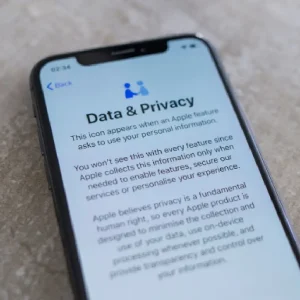
UK civil servants have little to no confidence in the ability of their departments to use technology to improve public services. Resources and skills are well below the standards needed to transform the economy and meet ministerial goals for a more digital civil service by 2025, a new study has revealed.

The digital skills report has been produced by the Global Government Forum with support from the Central Digital & Data Office of the UK Cabinet Office and Google Cloud. It found that the public sector is behind other industries when it comes to digitalisation, highlighting areas the Government needs to focus on if it wants to achieve its digital roadmap set out in the Autumn budget.
Fewer than half of civil servants said their department had the tools, resources and skills needed to utilise technology to transform public services, with digital transformation held back by a combination of legacy tech, low budgets, and the lack of skills.
It isn’t just training that is causing problems for the Civil Service. The study found that there was an inability to hire qualified talent with skills in areas such as automation, AI, and cloud technology. A shortage of people for these in-demand roles is also impacting the private sector. A major survey of tech leaders published earlier this month found a lack of digital skills was putting digital transformation projects at risk and preventing them from keeping up with the pace of change.
Despite a lack of skills and resources, most civil servants questioned accepted the value of technology as an enabler of innovation and the key to unlocking public sector transformation, with 86% believing their job is to innovate and optimise public services.
Alongside the report, Google Cloud has also launched its first-ever industry consultation on digital skills across the Civil Service in the hope of understanding where the industry is today and what training and awareness is needed.
Civil Service learning to embrace digital technology
Megan Lee, chief executive in the Central Digital Data and Data Office says the aim is to see the UK government transformed by 2025 to make it more efficient and provide better outcomes for everyone. “A central tenet to achieving that mission is equipping all our people with the capability and tools for a digital future, which is why we’re focused on upskilling not just digital, data and technology (DDaT) professionals in government, but all civil servants.”
That view is supported by Alex Thomas, program director at the Institute for Government who told a panel on digital talent and the public sector employee experience held as part of the Tech Monitor Public Sector Technology Symposium that “the biggest gap in the civil service’s current digital roadmap isn't so much amongst the tech experts and specialists, it's amongst the rest of the civil service.”
“There is a growing recognition [that it is] really important that you address the digital skills of the 97% of civil servants who aren’t digital specialists,” he said, adding that austerity also presents a risk to the skill base of the civil service as the cuts are never even.
Thomas added: “It's very hard for those cuts to fall in the most intelligent places and they tend to fall slightly randomly based on 5%, 10%, 15% top slicing of budgets, which means that the budgets that get cut are the easiest budgets rather than the right ones.”
The main positive takeaway from the digital skills survey was that three-quarters of those questioned are actively looking to receive more digital skill training, suggesting that there is demand within the workforce to fill the skills gap. Lee says the government is already rising to meet that demand through plans announced in the 2025 strategy.
This includes upskilling at least 90% of senior civil servants on digital and data essentials, with learning embedded into performance and development standards, deepen the skills of DDaT professionals, including providing annual training related to their area of expertise and strengthen the departmental offer to existing and prospective talent by aligning role definitions to the DDaT Capability Framework.
“I don’t underestimate the challenges we face when it comes to attracting and retaining top-of-the-market digital talent in a fiercely competitive environment, or the benefits that could be reaped for the public if we are to succeed in building digital skills at scale,” said Lee. “In an increasingly challenging external environment, the Civil Service will need to work smarter and faster to deliver great services to the public, and to deliver policies with greater precision and impact.”






